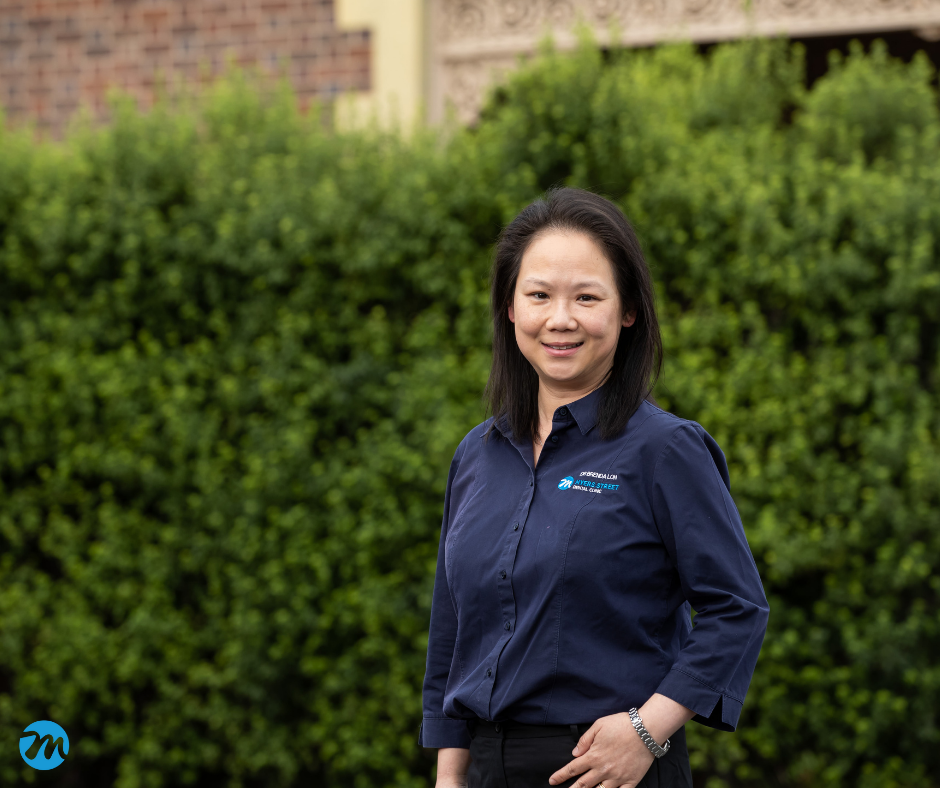What to look for when choosing the right dentist for you.

“I have an excellent doctor! You should go see her… cos she’s just lovely!”
Phrases like this make me cringe. How is it that so many people measure professional expertise with personality? Imagine picking the best brain surgeon to operate on your wife based on their great sense of humour!
Years ago, my husband went to a doctor. The doctor asked him a few questions and quickly summarised with “so what would you like today?”. So he simply listed his wishes – a new prescription for my cholesterol medicine, a referral to a sleep study because my wife thinks I might have sleep apnoea, and a medical certificate for today please! I listened in horror as my husband reported back later that the doctor promptly wrote all 3 requested documents and completed the consultation very satisfied that he had another happy customer. No, there was no discussion about the fact he was pre-diabetic and had gained significant weight over the past year. He didn’t even check what his last cholesterol results were. Although my husband was quite happy with himself for yet another task ticked off efficiently, I was less than impressed.
Choosing the right family dentist is a lot like choosing the right doctor for your family. Sure, there are times when all you need is a flu shot, medical certificate or a prescription. It’s tempting just to opt to see anyone who can provide that one thing you want at the drop of a hat – someone who can get you in quick and let you get on with your life as quickly as possible.
The dental professional equivalent of this is having a go-to dentist who only patches up the odd broken tooth or lost filling. Someone to serve the purpose – clean your teeth, or extract the badly infected tooth and send you away with no expectation to meet again until the next bad thing happens.
I firmly believe that the dentist-patient should begin with a good rapport, but that is only part of the whole package.
To help you find the right dentist for you and your family, below are a few aspects to consider.
1. Someone who is in tune with preventing future problems is there with you in the long haul.
A dentist who is committed to long-term patient care is not that hard to pick. They will first listen to your initial concerns and offer solutions to fix the problem. However, she will also offer you valuable insight into why this happened, what other issues could be linked to your initial complaints. Most importantly, she will let you know where you are headed in terms of your future condition.
Let’s use an example: You tell the dentist that you broke a tooth. She can quickly offer to patch this up with a filling or secure it with a crown. Seems quick and simple.
But what if this dentist also took the time to ask you if you have a tendency to grind or clench? Perhaps she touches your neck and facial muscles to see if they have been overworked from the clenching? Do you wake up with headaches or neck pains often? Have you had many teeth or a filling break in a similar way? Next comes the discussion of today’s repair (of course, that’s what you wanted right?) along with the possibility that there could be an underlying cause that could mean anticipating and planning for similar issues with broken teeth in the near future.
The truly amazing doctors are inquisitive and perceptive – that is, they make observations and check the little things that you never realised were relevant to the big picture.
2. Someone who gives you all options but supports your decisions 100%.
As a child, I observed my parents accepting exactly what their doctors and dentists told them they must do. It was the doctors who made decisions about the patient’s treatment. So much so that even now, there is still a whole generation of patients who turn up 6 monthly and literally say, “Don’t tell me anything. Just do whatever you want, I’m in your hands”.
Things are different now thanks to the principle of “informed consent”. As the patient, you have to take responsibility for your own health, so it only makes sense if you also take on the responsibility of choosing the strategies to manage your health issues. But you can only do that if you have the information to help you make the choice that is right for you.
A clinician worthy of your trust is someone who helps you to understand the problems you are facing and gives you strategies to solve them in a way that you can live with.
For example, you may be missing some teeth and wish to get these replaced. The dentist tells you that you can choose a denture, a bridge or an implant and gives you the associated costs. You’d love to have an implant but it is too expensive for right now. Here’s where you could be going home feeling awful that you can’t afford the best and will have to live with a gap for years to come. If you find a dentist who reassures you, “That’s alright. If a denture is a thing you can budget for right now, I will help you get the best denture possible. And we will support you as best we can, keeping the other teeth healthy.” If you feel pressured that you will only be cared for if you choose the most complex solution, then keep looking. You deserve to find someone who not only gives you the information you need but wholeheartedly supports you to make the decisions that are right for you – even if it’s not the most expensive option on offer.
3. Someone who is at the forefront of the latest research and techniques.
Research and development of technology have evolved so rapidly in the last few decades. It’s a really exciting time to be alive!
A dentist should be equally excited to be practising their craft in this age. Even if you have had minimal issues with your oral condition in the past and you always get a good report after your clean and dental check-up, don’t be afraid to ask your dentist, “What’s new?”.
Someone actively keeping up with the latest findings and technology can hardly contain their joy at the possibility of new ways to help their patients achieve a stronger and healthier future. Now not all these developments are necessarily new things you personally will need, but it’s good to know that your dentist is equipped with the latest information. It’s also handy to keep in mind that a good clinician also has enough humility and confidence to acknowledge when there is a need to call on colleagues with a different set of special skills or fields of interest to best help their patients.
The relationship between doctor and patient is very personal and based on trust. I hope everyone can find a dentist who truly cares about and supports their long-term health. When you do, ask them if they would also care for your family and friends too.
By Dr Brenda Loh

